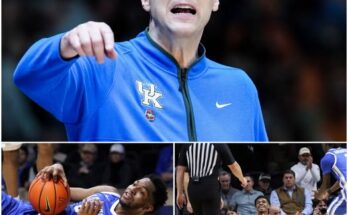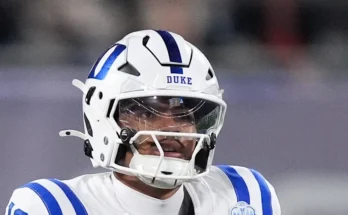In the storied history of college football, few names command the respect and admiration that Johnny Manziel and Herschel Walker do. These two athletes, each a phenomenon in their own right, have left an indelible mark on the sport and its culture. Their impact is so significant that debates often arise about who deserves the title of the greatest college football player of all time. Although Walker’s legendary status at the University of Georgia during the 1980s made him a household name, Manziel’s rise at Texas A&M in the early 2010s changed the game in ways that still echo through college football today. For many, the question remains: who is the true king of college football? Is it the unstoppable force of nature in Herschel Walker, or the electrifying, game-changing dynamo that was Johnny Manziel?
Johnny Manziel’s story is one of unprecedented rise and sheer dominance. Arriving at Texas A&M in 2011, the young quarterback had a unique style that set him apart from the typical college football player. Known for his incredible arm strength, improvisational skills, and elusiveness in the pocket, Manziel made an immediate impact in his freshman year. He had an uncanny ability to keep plays alive with his legs, often escaping pressure and delivering stunning passes on the run. Manziel’s game was built on his ability to extend plays, keeping defenders off balance and making things happen when it seemed like all was lost.
His 2012 season, in which he won the prestigious Heisman Trophy, cemented his place in college football history. Manziel became the first freshman to ever win the Heisman, a feat that stunned even the most seasoned college football observers. He led the Aggies to a historic 11-2 record, an incredible achievement for a program that had just entered the Southeastern Conference (SEC). Throughout the season, Manziel’s brilliance was on full display as he shattered numerous records, including the most total yards in a single season by an SEC quarterback. His ability to dominate against some of the toughest defenses in the country, including a thrilling victory over the defending national champion Alabama Crimson Tide, left an undeniable mark on the game.
While Manziel’s college career was relatively short, it was also highly productive. In just two seasons, he amassed over 7,800 passing yards, 63 total touchdowns, and made a huge impact on the future of college football quarterbacks. Manziel’s style of play — a mix of improvisation, dazzling footwork, and deep passes — inspired a generation of young quarterbacks to embrace a more versatile approach to the game. His ability to make plays with both his arm and his legs set a new standard for dual-threat quarterbacks in the modern game. In an era where mobile quarterbacks were becoming increasingly important, Manziel’s skillset was revolutionary. His play seemed to break all the traditional rules of quarterbacking, and as a result, his influence continues to be felt in today’s college game.
However, the argument for Manziel as the greatest of all time is far from simple. To make a fair comparison, we must look at the career of Herschel Walker, one of the most dominant players in college football history. Walker’s career at the University of Georgia from 1980 to 1982 was nothing short of legendary. As a freshman, Walker immediately became a force to be reckoned with, rushing for over 1,600 yards and leading the Bulldogs to a national championship. His performance throughout the 1980 season, where he finished second in the Heisman race, helped solidify Georgia’s place at the top of college football.
In the years that followed, Walker continued to break records and rewrite the history books. His sophomore and junior years were filled with performances that were beyond belief, including a memorable 1,891-yard season in 1981 and a 1,752-yard season in 1982. He finished his college career with 5,259 rushing yards, an astounding total that stood as the NCAA record for nearly two decades. Walker’s ability to bulldoze through defenses and gain yardage seemingly at will was unmatched. He was a physically imposing force on the field, and his combination of speed, strength, and vision was truly rare.
One of the most impressive aspects of Walker’s career was his consistency. Unlike Manziel, whose style was often flashy and unpredictable, Walker’s success came from a more traditional approach. He was the workhorse back who carried his team with relentless determination. While Manziel dazzled with his improvisation, Walker dominated through his sheer willpower and brute force. He could carry the ball 30 or more times in a game and still wear down even the toughest defenses. His ability to close out games by grinding out the clock was a key part of Georgia’s success during his time there. Walker was not just a highlight-reel player; he was a proven, steady force who dominated in all types of situations.
What makes the comparison between Manziel and Walker so intriguing is the contrasting nature of their playing styles. Manziel’s game was about breaking the mold, about redefining what a quarterback could do. His ability to improvise, to make something out of nothing, was what made him special. On the other hand, Walker’s dominance was about raw power and consistency. He didn’t need to make dramatic plays — his talent, work ethic, and ability to move the chains week after week were the true measure of his greatness. Where Manziel’s legacy is marked by electrifying moments and statistical milestones, Walker’s legacy is built on the back of steady, dominant performances that led to championships and sustained excellence.
The comparison also hinges on the success each player achieved in their respective eras. Walker’s Georgia Bulldogs went on to win a national championship in 1980, and his individual performances played a major role in cementing Georgia’s place as one of the top programs of the 1980s. His success was crucial in putting Georgia on the map and making the Southeastern Conference a powerhouse in college football. In contrast, Manziel’s Texas A&M career, while marked by personal success and an upset victory over Alabama, never resulted in a national championship. However, his impact was felt in the way he helped elevate Texas A&M’s profile as it transitioned into the SEC. His ability to succeed against the top teams in the country, especially in his Heisman-winning season, left a lasting impact on both the Aggies program and the way quarterbacks were expected to perform.
When we consider the totality of their careers, each player brings a different legacy to the table. Herschel Walker’s dominance in the running game and his ability to carry a team to victory through sheer force of will set a standard for running backs and power players. His career marks a time when the power running game was king, and few could match his combination of speed and strength. Johnny Manziel, on the other hand, rewrote the quarterback position for the modern era. His ability to make plays with both his arm and his legs revolutionized the expectations for dual-threat quarterbacks and set the stage for the mobile quarterbacks of today’s college and professional games.
In the debate over who is the greatest college football player of all time, the decision ultimately comes down to what qualities one values most in a player. If you prioritize leadership, power, and consistency, Herschel Walker may hold the edge. His records, championships, and ability to dominate in his era are hard to argue against. However, if you lean more toward innovation, excitement, and the breaking of conventional norms, then Johnny Manziel’s electrifying career may make him the standout choice. Ultimately, both players will be remembered as legends in the college football pantheon, and the question of who is the greatest may never have a definitive answer.
What is certain, though, is that both Johnny Manziel and Herschel Walker left their respective marks on the game of college football, each contributing to its evolution in ways that will continue to resonate for generations to come. Whether it’s Walker’s brute strength and championship pedigree or Manziel’s ability to break down defenses with his playmaking and style, both men will forever be etched in the history of the sport as two of its greatest players to ever step onto the field. Their legacies continue to inspire and shape the game today, and for that, they will always be remembered as legends.



